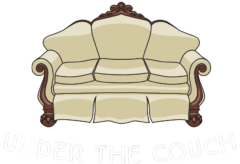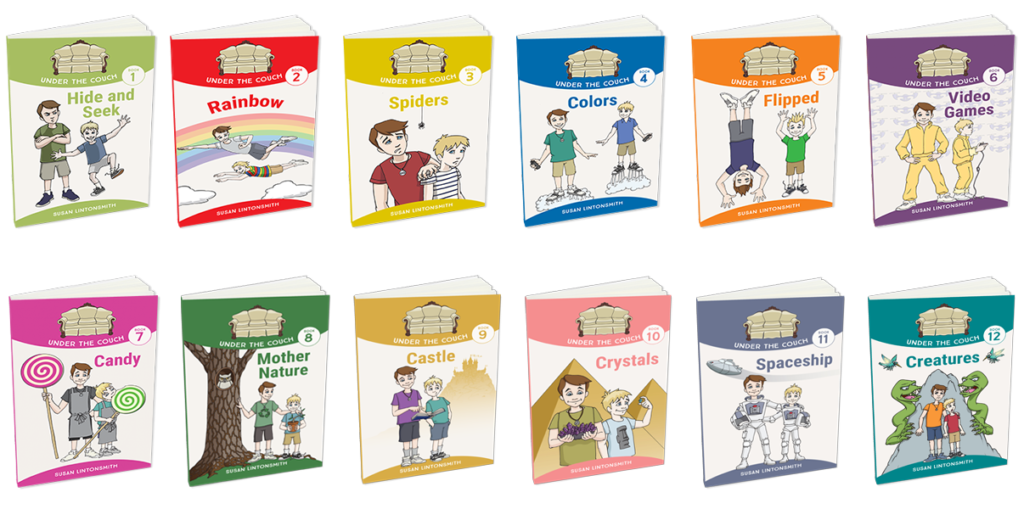Reading Challenges
The Under the Couch series was written keeping in mind kids who have high interest and intelligence but struggle with reading. The stories are shorter (around 100 pages), the font size is a little bigger and the type of font was selected so kids could more easily tell a “g” from a “p”, and an “a” from a “d”.
The goal is that kids everywhere, especially those who struggle with reading, will enjoy the Under the Couch series.
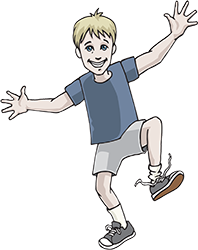
Justin likes stories and books but hates reading. He tries really hard, but it doesn’t get any easier. He struggles with books that other kids his age can easily read. He hated when the first-grade teacher made them take turns reading out loud. It was so embarrassing.
His parents think he needs to practice more. Sometimes, he’ll work hard to read an entire page and then have no idea what he just read. He struggles with spelling too. He has to memorize his spelling words whereas others can easily remember how words are spelled. He has trouble connecting the written letters and the sounds.
Justin doesn’t understand it. He’s good at most other things. He’s athletic and personable. He’s quick with comebacks and can easily make people laugh. His parents say he’s intelligent, but when it comes to school, Justin doesn’t feel smart.
After his mother takes him to see a licensed clinical psychologist who specializes in learning issues, Justin learns that there’s a reason he struggles … and he’s not alone!
He learns that the problem is inside his brain.
An estimated 11% of school-aged children in the U.S. have some level of dyslexia.
Besides struggling with reading and spelling, seven-year-old Justin has other signs of dyslexia, including:
- Troubles tying his shoelaces — it takes him a long time to tie them and they quickly become untied.
- Figuring out which hand to write with — he switches the pencil back and forth between hands.
- Remembering to write on a page from left to right.
- Mixing up the letters “b”, “d”, “g” and “p”.
- Not wanting to read and doing what he can to get out of it.
- Failing to recognize common words that are spelled irregular.
- Struggling with focusing at school.
- Losing his place on the page.
- Recalling what he just read.
- Saying words that are long and have more than three syllables.
- Poor handwriting.
- Disorganization and messiness, such as his room, backpack, locker, and school desk.
- Difficulty learning to tell time on a regular clock.
- Trouble remembering math facts.
An estimated 15–20% of the population have some of the symptoms of dyslexia, including slow or inaccurate reading, poor writing and spelling, or mixing up similar words (dyslexiaida.org).
What Is Dyslexia?
It is a learning problem that makes it tough to read and spell. Math can be difficult as well.
Dyslexia means that a person’s brain has trouble making connections between written letters and their sounds.
It is hard to break words into separate speech sounds and it can be hard to connect speech sounds to different letters, like /b/ for b, and blend them into new words.
A child with dyslexia will read slowly and might make a lot of mistakes. Sometimes the person will mis-sequence letters, such as reading the word “was” as “saw.”
Dyslexia has nothing to do with intelligence. The problem is inside the brain, but plenty of smart and successful people struggle with dyslexia.
The GOOD news?
Children with dyslexia usually have normal intelligence and vision.
With the right kind of teaching and help, most kids with dyslexia can learn to read and spell. They might learn new ways for remembering sounds. Getting help for dyslexia may help them go on to do great things in life.
The BEST news?
Some of the most creative and successful people have dyslexia, and it didn’t stop them from achieving their dreams!
Note: The preceding information is based on Justin’s experiences and factors that went into his diagnosis by a licensed clinical psychologist who specializes in learning issues.
If you suspect reading issues, the best thing to do is to go to a specialist who can help figure out what’s wrong.
Did you know that ADHD and dyslexia can have similar symptoms?
ADHD: Attention Deficit / Hyperactivity Disorder
What Is ADHD?
ADHD is a medical condition that affects attention and sometimes self-control. It is one of the most common disorders affecting children.
Symptoms may include:
- Inattention – not being able to keep focused
- Hyperactivity – excess movement that is not appropriate for the setting
- Impulsivity – doing something without prior thought
A lot of people may struggle at times with paying attention, listening, sitting still, or waiting their turn. But kids with ADHD have trouble with these things nearly all the time. They have a harder time staying focused. It can make them more fidgety than other kids. Some kids are unable to simply control or redirect their attention / activity level / impulsivity and their functioning is ‘impaired’ because of this. Many kids with ADHD actually can hyperfocus on something that they are really good at, that is competitive, novel, or that they find highly interesting. Unfortunately, most aspect of life don’t fit one of these parameters!
Adults are also impacted by ADHD — it is considered a life long condition. Symptoms can change and hyperactivity often becomes more subtle. ADHD may look different in adults, but can cause problems if left untreated.
A person with ADHD is six times more likely to have a learning disorder like dyslexia.
The ADHD Brain:
Think of the frontal lobe of the brain (in your forehead) as the “operating system” of the brain. When a person has ADHD, that part of the brain develops a few years slower than the rest of the brain.
An ADHD brain makes it hard to pay attention to topics that are difficult or to sit still for subjects they find boring.
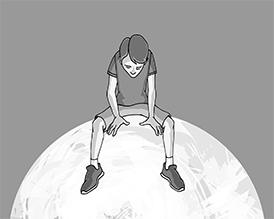
Spencer has ADHD. He’s very smart but sometimes has trouble listening or paying attention. He gets distracted. He loves space and is teased that his head is frequently in space. It’s because he seems lost in his own thoughts.
While he was well-behaved in school, he would often stare out the window in class. The teachers saw that he wasn’t listening. He yawned frequently because he was bored. Unless he loved the topic, he struggled to stay engaged in the conversation. The teachers knew he had ADHD and would allow him to stand up or go get water. They also reminded him to pay attention and to take notes.
Spencer’s ADHD also makes it hard for him to remember a list of tasks to do, like bringing home the right books to study for a test or getting homework turned in on time.
Spencer struggled to focus on his homework, especially if it included a lot of reading and he found the topic boring.
When Spencer went to see a psychologist, he felt like someone understood him for the first time. She asked questions about what was going on in his life and at school. She asked if he had trouble doing homework, sitting still, slowing down, or listening. She asked his parents and teachers several questions as well. It was determined that he struggled with ADHD. And the doctor said it could be genetic.
Spencer was relieved that someone understood him and to learn that there was an explanation for how he felt.
The GOOD news?
With work, kids with ADHD can improve their attention and self-control, do well in school and in the activities they enjoy, and feel good about themselves.
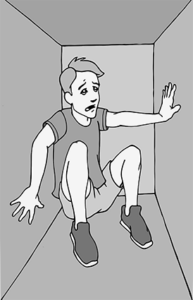
Anxiety
Spencer worries about things, sometimes feels edgy or stressed, and has trouble falling asleep. He struggles with anxiety.
He learned that up to 30 percent of kids and 50 percent of adults with ADHD may also have an anxiety disorder.
Keep Up With the Adventures!
Join the Under the Couch Community and be the first to learn of new books, new adventures, and more!
